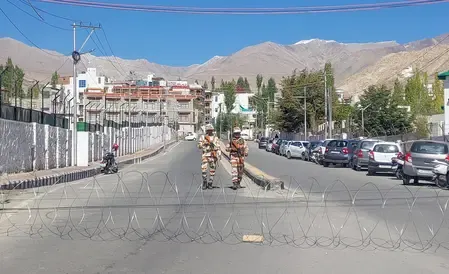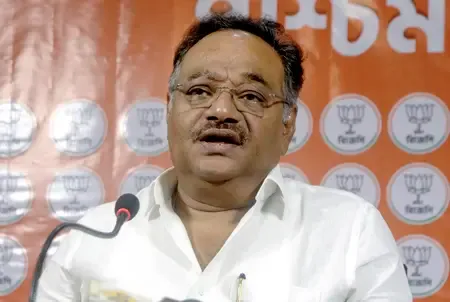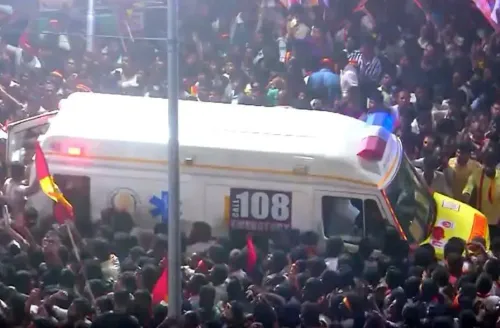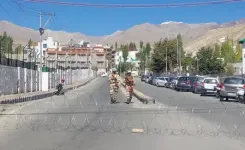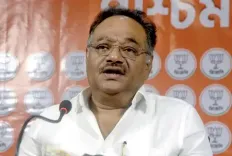Did Nitish Kumar Showcase Unity During Mahasaptami?
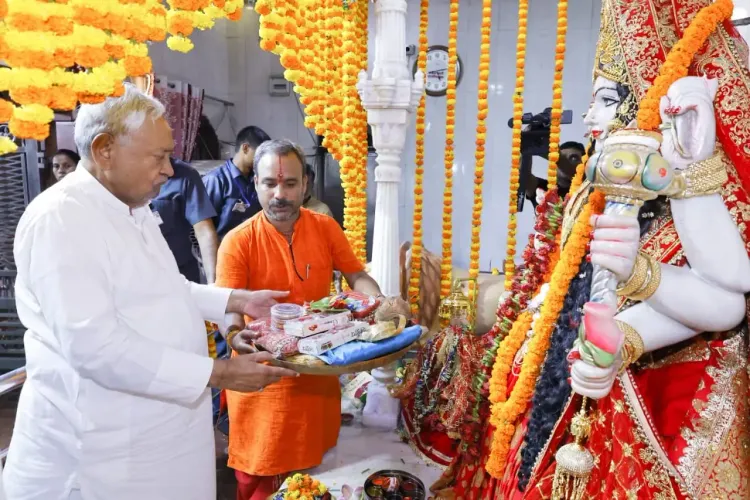
Synopsis
Key Takeaways
- Nitish Kumar visited multiple Durga Puja pandals to pray for Bihar's wellness.
- His participation in rituals highlights the spiritual and political unity.
- The event showcased a positive atmosphere among leaders during Navratri.
- Collaboration in celebrations reflects shared values in governance.
- The festivities symbolize the triumph of good over evil.
Patna, Sep 29 (NationPress) On this significant day of Mahasaptami, Bihar's Chief Minister Nitish Kumar made his way to multiple Durga Puja pandals across Patna to invoke the blessings of Goddess Durga, praying for the happiness, peace, and prosperity of the state.
The Chief Minister began his spiritual journey at Shri Shri Durga Puja Mahotsav Shiv Mandir in Khajpura, followed by a visit to Shri Shri Durga Ashram in Sheikhpura, where he conveyed his festive greetings to the citizens of Bihar.
He also engaged in rituals at the Shiv Temple in Khajpura.
The priests at the pandals warmly welcomed him with Mata Ki Chunari, as he immersed himself in the devotion of Goddess Durga.
Earlier, he participated in the Maha Aarti at the residence of Deputy Chief Minister Vijay Kumar Sinha, located at 3 Strand Road.
He lit the ceremonial lamp and took part in the Phalahar (fruit meal) ceremony, representing harmony and devotion.
“I pray to Goddess Durga for the well-being and prosperity of the people of Bihar,” stated Nitish Kumar, extending his Navratri wishes to all.
The event was graced by numerous prominent leaders and officials, such as Water Resources and Parliamentary Affairs Minister Vijay Kumar Chaudhary, Rajya Sabha MP Sanjay Kumar Jha, JDU State President Umesh Singh Kushwaha, MLA Sanjeev Chaurasia, and several others.
The collaborative presence of Nitish Kumar and Deputy CM Vijay Kumar Sinha at the Maha Aarti is interpreted as a symbol of unity within the ruling coalition, fostering a positive and cooperative political climate.
Later, the leaders enjoyed a fruit meal together with guests, embodying a festive and familial atmosphere.
This celebration, characterized by devotion and unity, not only highlighted the religious fervor but also reflected a harmonious aspect of Bihar's political environment during the sacred days of Sharadiya Navratri.


